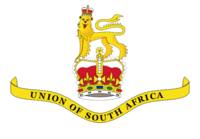Patrick Duncan
Politician
Sir Patrick Duncan, GCMG, PC (1870–1943) was the sixth Governor-General of the Union of South Africa, holding office from 1937 to 1943.Born in Scotland in 1870, he took degrees in classics at the University of Edinburgh and at Balliol College, Oxford, and studied law in the Inner Temple, before joining the British civil service.In 1901, during the Anglo-Boer War (1899–1902), he was recruited by Viscount Milner, to join a team of young administrators - known as "Milner's Kindergarten" - to govern and anglicise the British-occupied Transvaal. He was Colonial Secretary of the Transvaal from 1903 until the colony was granted self-government in 1907, playing an important part in the repatriation of ex-prisoners of war, and in the social and financial reconstruction of the former Boer state.Duncan practised as an attorney from 1907 to 1910, and was a legal adviser to the Transvaal delegation to the 1908-1909 National Convention that drew up the constitution for the Union of South Africa.He was a member of the Union Parliament from 1910 to 1936, first as a member of the Unionist Party, then of the South African Party and its successor the United Party. He was Minister of Education, the Interior, and Public Health in the SAP administration from 1921 to 1924, and Minister of Mines in the UP administration from 1933 to 1936.Duncan was appointed Governor-General in 1937, the first South African appointee to hold the post. King George VI, whom he represented as head of state, knighted him and appointed him to the Privy Council.Although widely respected and above party politics, he made himself controversial in 1939 by refusing to call a general election on the question of whether or not the Union should enter World War II.The prime minister, General Hertzog, wanted to stay neutral, but Parliament supported his deputy, General Smuts, who proposed to declare war. Hertzog resigned, Smuts became prime minister and led the country into war, and political re-alignments followed.Sir Patrick died in office, in 1943. His ashes were interred in a monument at the new Duncan Dock in Cape Town harbour, which was named after him. The suburb of Duncan Village in East London, and the suburb of Duncanville near Vereeniging, were also named after him.Sir Patrick married Alice Dold in 1916. They had three sons and a daughter. One son, Andrew (1920–1942), was killed on active service in Libya. Another son, Patrick (1918–1967), was a well-known anti-apartheid activist.
Personal facts
| Birth date | January 01, 1870 |
|---|
| Birth place | Banffshire , Ellon Aberdeenshire , United Kingdom of Great Britain and Ireland |
|---|
| Nationality | |
|---|
| Date of death | January 01, 1943 |
|---|
| Place of death | Pretoria , Union of South Africa , Transvaal Province |
|---|
| Education | |
|---|
